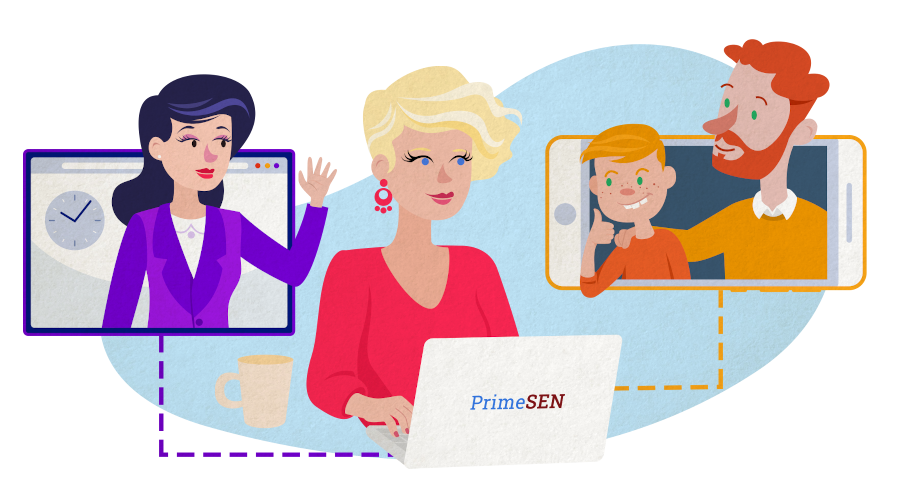What is SEND Mediation?
It is a process designed to help reach agreement over disputes surrounding SEND (Special Educational Needs and Disability), specifically in relation to EHCPs (Education, Health and Care Plans). SEND Mediation is paid for by local authorities and offered free to all parents, or young people, who are considering making an appeal to the SEND Tribunal. There is also a requirement for parents and young people to consider mediation before registering an appeal with the Tribunal.

Appealing a Decision
You may have had a letter from the Local Authority informing you of a decision that they have made in relation to an EHCP and advising you to contact a mediation adviser if you disagree with their decision. You can get in touch with a mediation adviser using the contact details on that letter, on the Local Authority’s Local Offer page or by contacting us here.
In order to appeal a decision you don’t agree with you can either
- Ask the mediation adviser to provide a mediation advice certificate so that you can go straight to tribunal.
- Ask for mediation first. This will not affect your right to appeal to tribunal later if you need to, but normally leads to a quicker resolution than tribunal.
- In certain circumstances local or independent disagreement processes may be more suitable .
In all cases, the first step in resolving your despute is the free advice and and information meeting where we will listen to and understand your case, and explain in more detail all of your options.
What to do next
The first step in appealing a decision starts with a phone call for free mediation advice. You’ll need to book an appointment with one of our advisors, but we can usually arrange this on the same day you call. We promise to answer your call as quickly as possible, and if we are busy, we’ll call you back as soon as we can. Calls after 5:00pm and at weekends will be returned the next working day.
Our friendly team of mediation advisors will take the time to listen to your situation and provide you with the information you need to decide what you want to do next. We will give you plenty of opportunity to ask any questions that you might have about the processes on offer.
We will advise you of any local disagreement resolution processes on offer, and explain to you what will happen if you decide to mediate. We also provide independent and impartial mediation and disagreement resolution services directly on behalf of the local authority.
What you decide to do next is your choice. We will not put any pressure on you.
Which options are available
If you decide to try to resolve your disagreement directly with the Local Authority we can give you details of how to contact them directly or through IASS.
If you choose to mediate we will notify the Local Authority and arrange for a mediator to contact you within 24 hours to explain what happens next.
Some cases are not eligible for mediation, in which case we can offer a process called independent disagreement resolution, which is very similar to mediation but can cover a wider range of circumstances.
If you want to go straight to the SEND tribunal we will issue you with a Mediation Advice Certificate which you will need to lodge your appeal and tell you where to go to get help with making the appeal.
Mediation
If you make a decision to mediate we will inform the Local Authority and set up a meeting within 30 days. A member of our team of mediators will then take on your case and guide you through the process. Your first phone call with them will allow the mediator to make sure they understand your situation and needs. They will also ask you who you would like to be present at the meeting and contact them to gather information and invite them to the meeting.
The meeting will usually take place within 30 days, if we are unable to arrange this we will issue with a certificate which would allow you to go straight to tribunal. We will then discuss with you whether you wish to lodge an appeal immediately, or wait until the mediation has taken place before deciding whether or not to appeal to tribunal.
During the meeting it is the mediator's responsibility to ensure that everyone has a chance to speak and to be understood. Mediators are not there to tell anyone what to do but to help everyone directly involved in the situation to make a decision in the best interests of the child or young person.
At the end of the meeting you will receive a formal written record of all of the issues that have been agreed. If no agreement has been reached or if you have only agreed on some of the issues you will receive a summary of the decisions that have been made, together with a mediation advice certificate which means you can still go to tribunal on any or all of the issues you are not happy with.
Disagreement Resolution
Disagreement resolution is a voluntary process available to parents and young people to resolve disagreements in relation to any aspects of SEND provision, not just those that are being assessed for or have an EHCP. It is a very similar process to mediation but, unlike mediation, the Local Authority does not have to take part. If you request disagreement resolution then we would need to get their agreement to participate first.
We would be happy to discuss if mediation or disagreement resolution is the right option for you, and we will advise you about all of your options when you contact us.
Book a free information call
What is an EHCP?
SEND mediation
- Is free for parents - paid for by the local authority.
- Is available to anyone involved in a dispute with their local authority relating to an Education, Health and Care Plan (EHCP).
- Retains your right to appeal to the SEND Tribunal.
- Is much quicker than going to tribunal.
- Your mediator will guide you through the process and ensure that you are supported during the meeting.
- You still have at least the same amount of time left to register your appeal as you did when you decided to try mediation.

Online Service
Ever since the coronavirus lockdown required us to change our approach, we have been completing most of our mediations via online video conferencing. We use a range of secure, user-friendly platforms, which have proved to be a convenient way of promoting positive outcomes. It has become apparent that there are considerable advantages of online mediation over the traditional face-to-face meetings, which have resulted in this becoming our usual method.